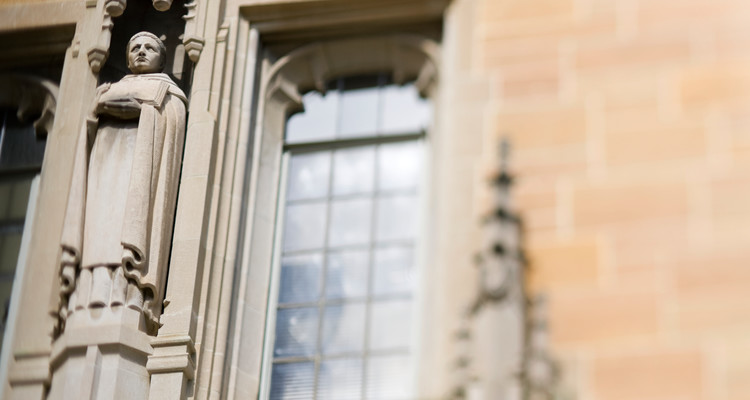St. Thomas Aquinas is the patron of more universities than any other saint. He certainly was smart, one of the great geniuses of Western civilization. Each year sees upward of 3,000 books and articles published on his thought across confessional and disciplinary lines. He was also very productive, producing upward of 100 works.
But there is more to the man. He ordered his life to the truth, to knowing it more deeply and fully. He sought it out. He studied pagan, Jewish and Muslim philosophers and theologians and drew from their works; he also argued against them. The goal was always the truth.
What makes this lover of the truth such a fitting patron of universities is that he was a professor for his entire adult life. He saw his task as the articulation and communication of the truth. He ordered his own mind with its remarkable clarity to sharing the truth with others, whether students in his classroom or readers of his writings.
For moderns, Aquinas’ style is puzzlingly impersonal. His work only can be understood in relation to his faith in him who is the way, the truth and the life. As we see in the stained glass window in the O’Shaughnessy-Frey Library tower, Christ spoke to Aquinas from the cross: “You have written well of the sacrament of my body, Thomas, what would you have from me?” To which Aquinas responded, in the words on the seal of our university, “non nisi aliam te (nothing but you).”
For Aquinas, faith and reason were fascinatingly complementary. This gave him confidence in the wide range of his reading and also gave power and delight to the integrating and unifying character of his mind.
Faith and reason also were the sources of the peace that characterizes almost all of his writing. He taught at a time when his order, the Order of Preachers, was the subject of both intellectual and physical attack. He lived in a time when university disputes were not only of the highest intellectual caliber but also often personal, petty, ugly and violent. One would never know the latter from his writings, which are marked by an irenic tone second to none. He can be at peace, for the truth illumines the complex and gritty reality of existence and lifts the soul to something yet greater and more sublime. Aquinas manifests this in his teaching, his prose and his life.
He is a worthy patron of a university.
